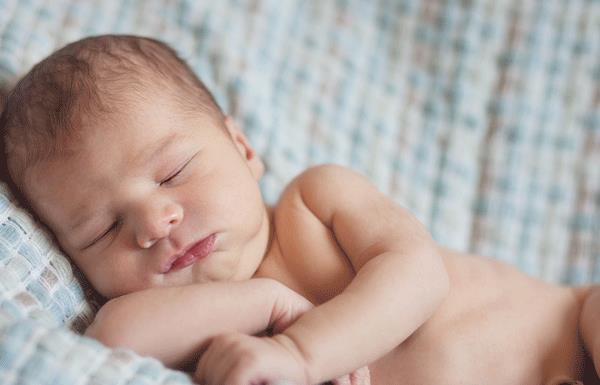Early circumcision in a newborn increases the risk of sudden death syndrome (SIDS). The decision to cut sooner or later is due to the parents but often follow the doctor's advice first.
The foreskin on a boy's genitals is the part of the skin that covers the foreskin. During pregnancy, the foreskin and tip of the penis develop as a unified, sticking body. After birth, the inner surface of the foreskin and the skin of the tip of the penis begin to separate, thanks to cell shedding in the surface of each layer. It takes 5-10 years or more, the separation process is completed.

Early circumcision will affect the health and psychology of the child
Saying so to know, foreskin has a natural law of development, and whether or not it almost depends on the decision of the parents with the infant.
But there is an important note from British scientists: The latest research shows that newborn boys who are circumcised are at a higher risk of sudden infant death syndrome . Scientists believe that the cause is due to the physical stress the surgery causes.
It could be bleeding and pain from circumcision as well as being separated from the mother for special care ... The team also believes that circumcision is unnecessary.
The scientific team at the University of Sheffield (UK) analyzed the rates of male birth circumcision in 15 countries and 40 US states between 1999 and 2016.
Results showed that boys who had to be circumcised had a significantly higher risk of dying from SIDS than other normal boys. In particular, this risk is three times higher than normal if the baby is born prematurely at just 24 to 27 weeks old, instead of 40 weeks as usual.
Reduce the risk of sudden death in infants
Always put your baby on his back to sleep, reducing the risk by up to 50%.
Clean pillows, soft toys, pillows and objects that can interfere with your baby's breathing.
Do not cover the baby's head while sleeping.
Keep your baby's room at a moderately cool temperature, especially if your baby is wearing diapers.
Avoid letting your baby share a bed with parents during the first few months of life, as soft mattresses are also a risk.
Breastfeeding or nipples while sleeping can reduce the risk of SIDS.












